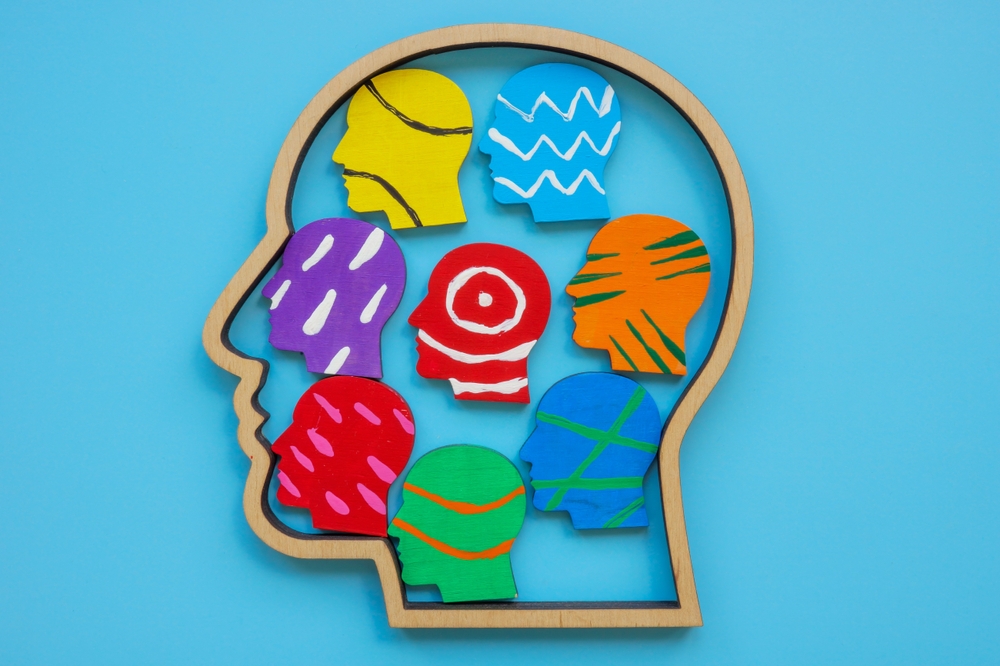Addictive personalities are about way more than just substance issues—it’s about how we connect with everything from our relationships to our Instagram feeds. In our world of instant gratification and constant connectivity, understanding these patterns isn’t just fascinating psychology—it’s practically a survival skill for anyone trying to live with intention instead of bouncing from one dopamine hit to the next.
1. You Have Impulse Control Issues

Impulse control issues manifest as a struggle to resist the temptation of immediate gratification. It’s the voice in your head that says, “Why not now?” rather than “Why not wait?” This impulsiveness can extend to various aspects of life, from spending habits to dietary choices. The inability to restrain these impulses can lead to regrettable decisions and reinforce addictive behaviors.
Why does this matter? Impulse control is directly linked to emotional regulation. Poor impulse control can exacerbate stress and contribute to a chaotic lifestyle. Recognizing this trait provides an opportunity to cultivate mindfulness and practice delaying gratification, ultimately leading to greater emotional resilience.
2. You’re Constantly Craving Newness

As outlined by the Journal of Neuroimmune Pharmacology, the quest for novelty or thrill-seeking is another telltale sign of an addictive personality. It’s the constant pursuit of new experiences, often at the cost of stability. For some, this might mean chasing adrenaline through extreme sports or frequent travel. For others, it may manifest as a need for frequent changes in personal or professional life.
Novelty seeking can be exhilarating but also exhausting. It can lead to burnout and strained relationships as the constant pursuit of newness may come across as restlessness or dissatisfaction. Acknowledging this trait allows you to channel your desire for novelty in constructive ways, like learning new skills or engaging in creative projects.
3. Your Stress Levels Are Usually Through The Roof

Living with consistently high stress levels can be a covert indicator of an addictive personality. It’s not just about feeling overwhelmed—it’s about how stress becomes a constant companion. According to the Mayo Clinic, chronic stress can catalyze unhealthy behaviors and dependence. It’s a cycle where stressors lead to detrimental coping mechanisms, which, in turn, increase stress.
Why should you care? Because recognizing and managing stress is essential for breaking the cycle of addiction. High stress levels can cloud judgment and diminish your quality of life. Learning to identify stressors and adapt healthier stress management techniques can transform your daily life and long-term health.
4. You Feel Stifled By Routine

People with addictive personalities often find routines stifling. The predictability of a set schedule can feel like confinement rather than comfort. This aversion to routine may result in frequent job changes or an inability to maintain consistent habits. While spontaneity has its charm, the lack of structure can lead to chaos.
Routine provides a framework for stability and productivity. Difficulty with routine can lead to missed opportunities and disorganization. Recognizing this trait allows you to find a balance, integrating spontaneity within a structured environment for a more fulfilling life.
5. You Have Intense Relationships

Intense relationships can signal an addictive personality, characterized by extreme highs and lows. As Fifth Avenue Therapy states, these relationships often feel all-consuming, whether romantic or platonic. They can be thrilling due to their intensity, but also emotionally draining. The ups and downs create a dependency on the emotional rush.
These relationships can overshadow personal growth and other life areas. They can lead to isolation or neglect of responsibilities. Seeing this pattern allows you to seek balanced, healthy relationships that foster mutual growth and respect.
6. You Have A Hard Time Letting Go

Individuals with addictive personalities may struggle to let go of people, memories, or habits. This attachment can manifest as grudges, nostalgia, or dependence on certain behaviors. The inability to release can stifle personal growth and keep you anchored in the past. It can also lead to prolonged emotional distress.
Why is this an important trait to identify? Because letting go is vital for moving forward and embracing change. Having trouble in this area can limit opportunities and foster stagnation. Understanding this trait empowers you to practice forgiveness and adaptability, paving the way for personal evolution.
7. You Engage In Risk-Taking Behavior

Risk-taking behavior can be a hallmark of an addictive personality. The adrenaline rush that comes with taking risks can become addictive in itself. This behavior often involves foregoing caution for the thrill of the unknown. It might manifest in financial decisions, personal relationships, or lifestyle choices.
Focusing on this trait can lead to significant consequences, both positive and negative. While risk-taking can open doors of opportunity, it can also result in loss and regret. Identifying this trait allows for more calculated risks, balancing excitement with prudence.
8. You Have To Be In Control

A strong need for control is common in addictive personalities. The urge to manage every detail of life can stem from a fear of the unknown. While control can provide a sense of security, it often leads to frustration and stress when things don’t go as planned. This rigidity can alienate loved ones and stifle spontaneity.
Life is inherently unpredictable, and the need for control can hinder your ability to adapt. Uncovering this trait allows for more flexibility and openness to life’s surprises. It fosters resilience and the ability to thrive amid uncertainty.
9. You Always Feel Dissatisfied

Chronic dissatisfaction is a pervasive feeling often linked to addictive personalities. It’s the sense that something is always missing, no matter the achievements or possessions. This dissatisfaction can lead to an endless pursuit of “more” in various forms—career, relationships, possessions. It can be exhausting and unfulfilling.
This is crucial because it affects your overall happiness and perspective on life. Dealing with this trait can lead to gratitude practice and contentment with the present. It encourages finding fulfillment in experiences rather than external validation.
10. You Hyper-Focus On Goals

Hyper-focus on goals is a defining characteristic of an addictive personality. It’s the intense concentration on achieving specific outcomes, often at the expense of balance. While ambition is commendable, hyper-focus can lead to burnout and neglect of other life areas. The journey becomes solely about the destination, overshadowing the present.
Why emphasize this? Because it can limit your ability to enjoy the process and appreciate incremental progress. Recognizing this trait allows for a more balanced approach to goals. It encourages mindfulness and an appreciation for the journey, not just the end result.
11. You’re Emotionally Avoidant

Emotional avoidance is a key sign of an addictive personality, where feelings are numbed or ignored. This avoidance can manifest through excessive work, hobbies, or substance use. It’s a coping mechanism to escape uncomfortable emotions or memories. While it may provide temporary relief, it often leads to greater emotional turmoil.
Avoiding emotions can hinder personal growth and understanding. Acknowledging this behavior allows you to confront feelings constructively. Embracing emotions, rather than running from them, fosters emotional intelligence and healthier coping strategies.
12. You Struggle With Low Self-Esteem

Low self-esteem frequently accompanies an addictive personality. It’s the internal narrative that you’re not enough, driving you to seek validation externally. This need for approval can lead to unhealthy relationships and decisions. The pursuit of feeling “enough” through external means often results in temporary satisfaction.
Why does low self-esteem matter in this context? Because it affects your core identity and life choices. Understanding this can lead to self-compassion and the cultivation of intrinsic self-worth. Building self-esteem from within can break the dependency on external validation, leading to authentic confidence.
13. You Want Everything To Be Perfect

Perfectionism can be a surprising yet significant indicator of an addictive personality. It’s the relentless pursuit of flawlessness, where nothing less than perfect is acceptable. This mindset can lead to burnout and dissatisfaction as the unattainable goal remains just out of reach. It becomes a never-ending cycle of striving, achieving, and feeling inadequate.
This trait can rob you of joy and gratitude for accomplishments. Perfectionism can hinder creativity and risk-taking, essential components of personal and professional growth. Recognizing this trait allows you to set realistic goals and embrace imperfection as part of the human experience.
Natasha is a seasoned lifestyle journalist and editor based in New York City. Originally from Sydney, during a stellar two-decade career, she has reported on the latest lifestyle news and trends for major media brands including Elle and Grazia.


